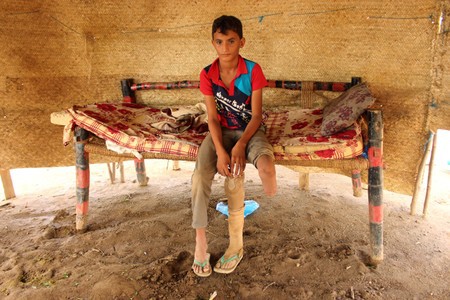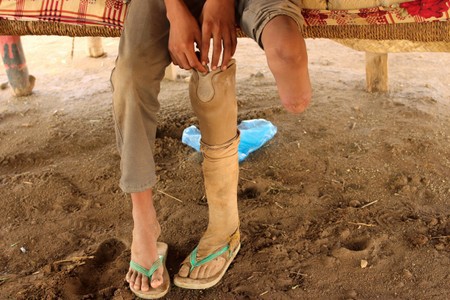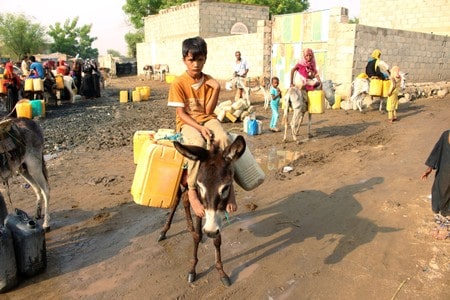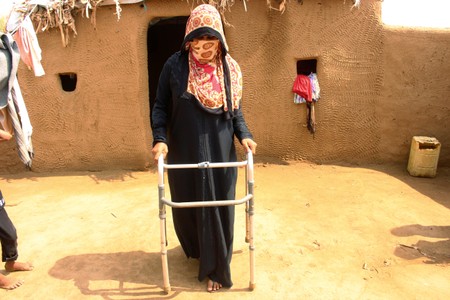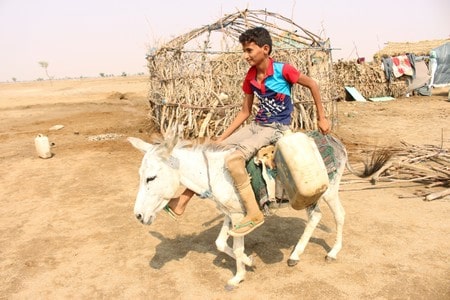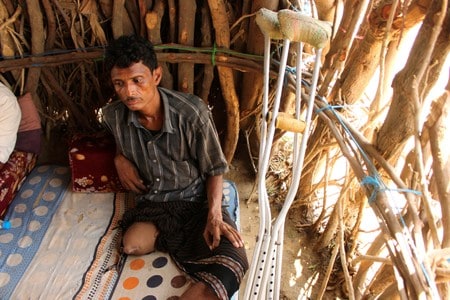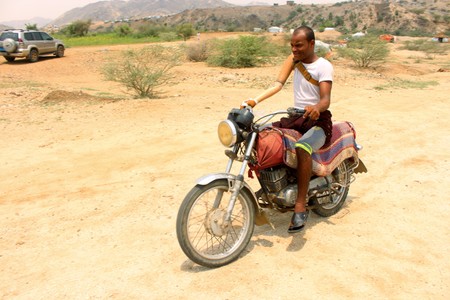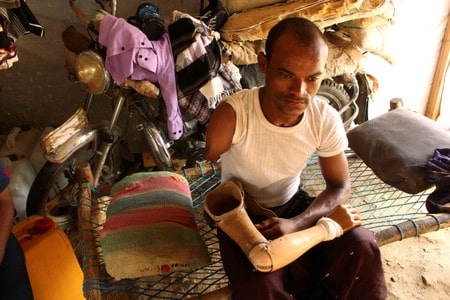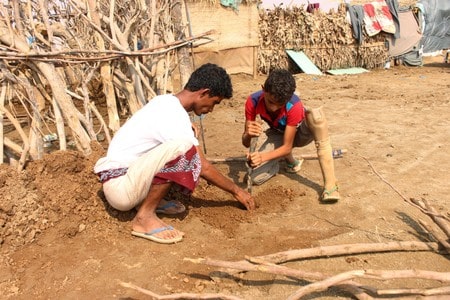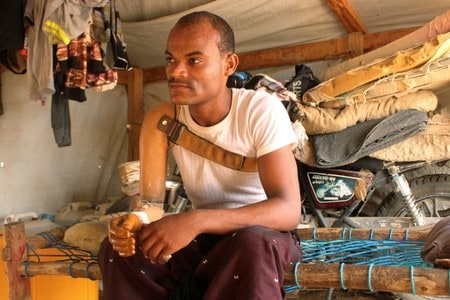AL-KHAMIS, Yemen (Reuters) – Ismail Abdullah kicks a makeshift football, wrapped in pink plastic, with his right foot. A slight limp visible, he holds back as his cousins run forward in the sand.
Twelve-year-old Abdullah lost his left leg in an air strike three years ago. Yemen’s four and a half-year war means medical care is hard to find and he waited two years for a prosthetic.
In 2016 Abdullah, his parents and his eight siblings left their home in Harad, a town near the Saudi border in northwest Yemen, because of shelling. They moved in with his uncle nearby but on a September night, just before the Eid al-Adha religious holiday, an air strike hit.
“The strike was very sudden and felt like someone pulled my leg, but then I realized it was blown off,” Abdullah said. Two of his cousins were killed in the same strike.
The United Nations says tens of thousands of people have been killed and millions displaced in Yemen’s civil war, which pits the Iran-aligned Houthi movement against a Saudi-led coalition, which is backed by the West and carries out air strikes.
Abdullah was rushed to Abs, in the province of Hajjah, where he was treated in hospital. Two years after he lost his leg, the Abs Development Organisation for Women and Children – a humanitarian operation – opened and arranged for him to travel to the capital Sanaa to be fitted with a prosthetic.
“I had to stay in bed for two years, but when the Abs Organisation finally opened, they installed a prosthetic leg for me and thank God now I can walk wherever I want,” Abdullah said, sitting down with his prosthetic removed revealing the stump below his left knee.
The prosthetic is a basic plastic calf and foot pulled over his knee with what looks like nylon tights.
Wearing his green flip-flops, Abdullah is now able to collect water from the tank and dig holes for tent stakes in the Internally Displaced Persons (IDP) camp where the family now lives, near the town of Khamis. He hopes to be reunited with his father, who recently left to look for work, and also to resume his studies.
“Before my leg was blown off, I had finished grades one and two. But since then there wasn’t a school close by and even right now, I don’t go to school.”
Thousands in Yemen have lost limbs because of strikes, shelling and landmines and have no access to prosthetics.
Landmines planted by Houthi forces on Yemen’s western coast since mid-2017 have killed and injured hundreds of civilians and hinder aid worker movements, Human Rights Watch said this year.
Eighty percent of people in Yemen, the Arabian Peninsula’s poorest country, need humanitarian assistance and millions are on the brink of starvation.
Of some seven million school-age children, two million are out of school completely, the United Nations says. Non-payment of teachers’ salaries has also impacted the availability and quality of education for Yemen’s children.
(Reporting by Reuters reporters in Yemen, Writing by Gayle Issa and Lisa Barrington, Editing by Gareth Jones)


